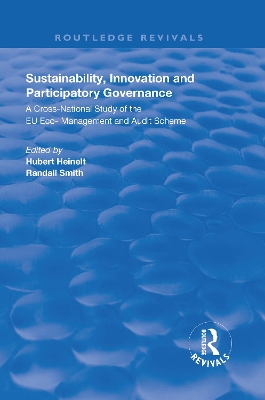Ashgate Studies in Environmental Policy and Practice
2 total works
Title first published in 2003. This book focuses on whether participatory governance can lead to sustainable and innovative outcomes. Using an empirical analysis of the development, implementation and review of an EU environmental management system - the Eco-Management and Audit Scheme (EMAS), it examines under which circumstances participatory governance might encourage sustainability and innovation.
European Union Environment Policy and New Forms of Governance
by Hubert Heinelt and etc.
Published 21 May 2001
Outlining the results of a three-country study, this text examines the impact of EU policy on the domestic, political and institutional environment. It tests ideas about new forms of governance that reflect the values of participation and empowerment of local interests, particularly through a close scrutiny of the environmental impact process. The book also analyzes the responses of the business sector in three countries - Germany, Greece and Great Britain - to the introduction of a voluntary environmental management system, the eco-management and audit scheme. The data collected brings to light the differences in responding to EU policy in a federal state, in a rapidly modernizing patronage state, and in a highly centralized unitary state. Through these comparisons, the robustness of the notions underpinning new forms of governance are tested and, in a number of respects, found wanting.

